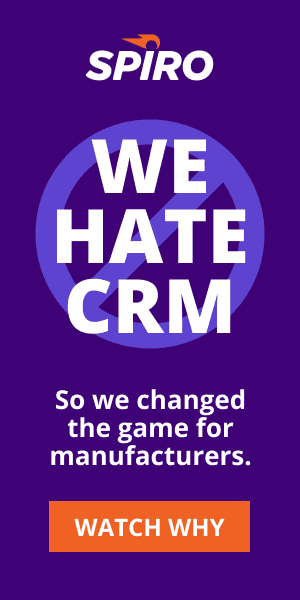5 Things Salespeople Won’t Do Five Years From Now
The pace of change can be dizzying. Every month, it seems like we’re getting closer and closer to the plot of the Will Smith movie, I, Robot… wait, how does that movie end again? Er, never mind. In any event, technology, and the trends that come with it, mean we can no longer expect things to stay the way they are for long, for better or for worse.
Salespeople, a massive segment of the workforce, are no exception. Just think about how much different selling was even ten years ago, back before LinkedIn was public and when Zoom was just a twinkle in its founder eye. Much has changed since then, and we can expect much to change in the future too.
This is why it’s important for salespeople to be cognizant of the trends taking shape all around them. Whether we want it to or not, the profession will continue to evolve, and salespeople who don’t keep up are likely to be left behind.
Here are some predictions for what salespeople won’t be doing five years from now:
1. Ignoring their digital presence
For years, many salespeople got away with avoiding social media and cultivating some sort of online presence. Those days are over as prospects expect to be able to look up the person they’re speaking to, even if its just a cursory Google search. The salesperson of the future will mind their digital presence the same way salespeople 40 years ago minded their suits. You don’t have to become an online influencer, but you do need to be online.
2. Making decisions without data
As a social profession, many salespeople prefer to work off instinct, building relationships that are difficult to measure by any scientific standard. The salesperson of the future, however, will be guided by data, using technology to analyze all parts of the sales cycle and offer recommendations for which next steps are likely to lead to a closed deal. For those who like a more structured and prescriptive sales process, this will be great. For those who prefer a more instinctive approach, it’ll take some getting used to.
3. Cold-calling
The debate over cold-calling is a bit stale, and neither side ever wants to give an inch. But whether you believe in cold-calling or not, you have to admit that the trends don’t favor the practice. Not only are most conversations moving online, but the epidemic of spam calls doesn’t bode well for the already diminishing returns of the cold-calling industry. Now, that’s not to say that B2B salespeople won’t be calling into business and looking for decision makers… but with the rise of digital marketing and mass communication tools, dialing a hundred numbers a day is likely to become an early 21st century memory.
4. Data entry
If there’s one task that salespeople won’t miss, it’s data entry. Hours of soul-crushing busy work not only bores salespeople to tears, but it takes away from time that can be spent being productive and moving deals forward. Artificial intelligence is rapidly replacing most of that busy work as companies realize just how much time gets wasted on meaningless updates and call-logging. Thankfully, Spiro can help you get rid of data entry today, with our Proactive Relationship Management platform. You might as well get a head start on the future, right?
5. Selling products that technology will make obsolete
This is perhaps the most bittersweet fact that we have to contend with. When new products emerge and win in the marketplace, it’s usually at the expense of a legacy player who shrinks or goes out of business. In the coming years and decades, technology will erase entire industries and leave the people selling these products without a role. This is why keeping up with your industry’s trends is so important. Understand what’s happening and why, and position yourself to move onto a forward-thinking company when your industry goes through changes. Whether we want to admit it or not, the future is right around the corner.

